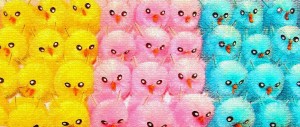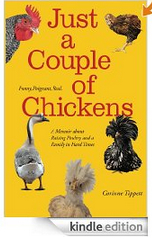
Will the flock of self published books overwhelm readers or enrich our world? So many books, so little time…!
This is one of the biggest questions at the heart of the emotional furor against self publishing , regarding the publishing changes going on today. Bridget Kinsella frames it perfectly in her article in Stanford University’s alumni magazine, dated November / December 2010. Her question, and the discussion, continues to rage today, almost two years after the article’s publication.
Bridget asks, “If the traditionally high barriers to publication fall, will that produce a world of unimagined richness or one mired in dross?”
She first points out that one of the advantages of the changes is that books are available everywhere, and in a bewildering array of formats. Practically any book is available to anyone with an Internet connection… even out of print books because of the stashes in old bookstores made available.
But the disadvantage comes back to the issue of quality, not just of the books, but also of the reviewers. If any author can produce a book and any blogger can review it, how can a reader find a good one?
Bridget’s article goes on to pursue the issues of the business as a whole, with valuable interviews with key people in the big agencies… but my focus is the question she posed.
Will readers be enriched or mired in dross?
Because I believe this is the key issue behind the “stigma” of self-publishing and the root of the negative emotion behind so many of the traditional versus self publishing arguments. A real fear that the availability of publishing technology and distribution channels will flood readers with so much garbage that the good books will drown.
It’s not a frivolous concern on the part of traditional publishing. There are many, many, badly-written poorly-produced self-published books, and I’m just as mad as anybody else when I spend my money on one. As mad as I get when I spend my money on a bad one produced by a well-known traditional publisher.
But it is, and always has been, buyer beware.
- I buy books from my favorite authors because of the previous books they’ve written.
- I buy on the recommendation of friends and family with similar reading tastes.
- I buy based on reviews that are specific about the story and its pros and cons.
- I buy based on the back matter, the cover, the genre, and the table of contents.
- I buy based on Amazon.com reviews, which are written by normal people. And I read every review when I’m getting ready to buy, especially the lower rated ones.
Nowhere in this list of things that drive me to buy a book is whether it is traditionally published or self published.
It simply does not matter to me… those other elements have to be in place before I will buy.
So a self published author has to do all those things same as a traditional publisher does, and has to do them well. And this is what will separate the dross from the riches, when it comes to actually selling books.
But there’s another element to the issue, and that’s outside of what is actually selling. So many self published books don’t sell very many copies. But they still exist, and the ideas contained in them, and the point of view of their authors, is an unbelievable gold mine of human thought and creativity.
In my opinion, it’s the best thing to happen to human thought since the Stone Age. Well written or not, it’s irreplaceable, invaluable, and inestimably precious.
But I still don’t want to buy a bad one, so I’ll stick to the way I buy books, and let the best book win.
« My Comparison Between the Chicago Manual of Style Online Or Hardcopy Evergreen Aviation & Space Museum Has Many Of The Aircraft Models That Tip Flew! »


